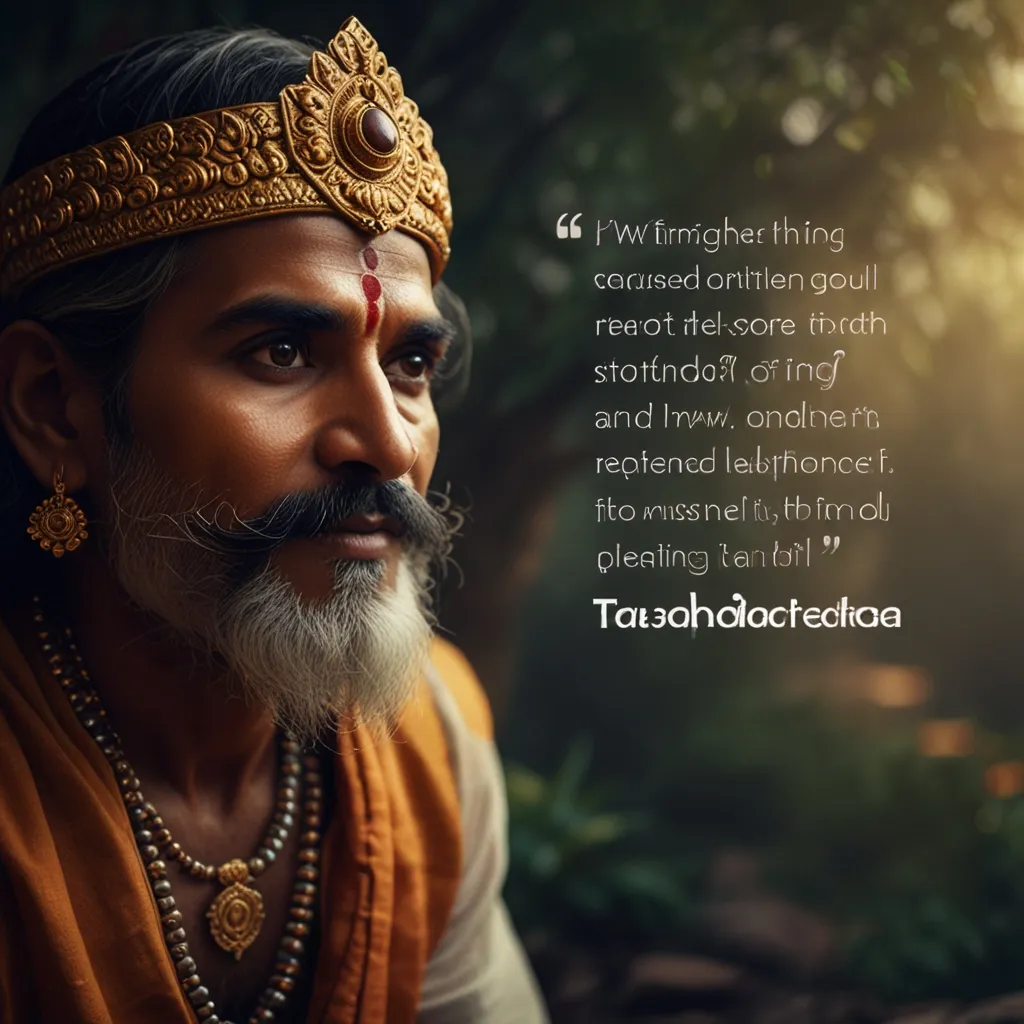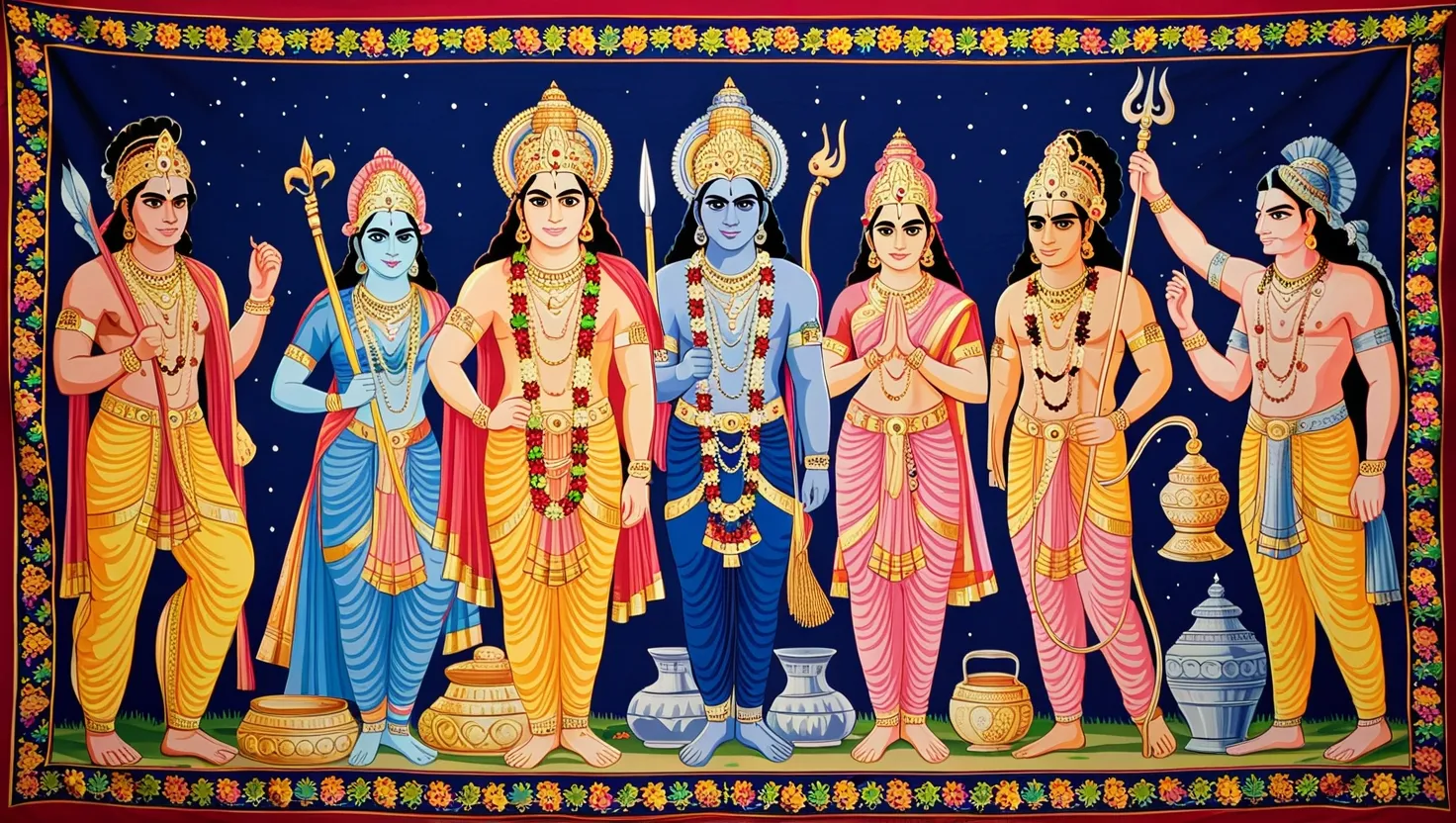In the ancient city of Ayodhya, there lived a famed king named Harishchandra. This guy was known far and wide for his unshakeable commitment to truth and integrity. Seriously, if honesty had a poster child, it would be him. Harishchandra’s story offers a solid testament to the power of sticking to your principles, even when the going gets ridiculously tough.
He was the kind of ruler everybody wishes for—just, noble, and deeply loved by his people. His kingdom thrived under his careful watch. He had a lovely queen named Taramati and a young son named Rohitashva. Everything seemed perfect until his life took a wild turn, thanks to a run-in with a sage named Vishvamitra.
Vishvamitra, a sage with immense spiritual prowess, was deep in meditation in the forest when the king unknowingly led his army through, causing a ruckus. This interruption did not sit well with Vishvamitra, who demanded that Harishchandra make up for his error in a big way.
Feeling genuinely sorry and wanting to do right, Harishchandra offered to do whatever it took to make up for his mistake. Vishvamitra, eager to see just how far the king’s commitment would go, asked for his entire kingdom and all his possessions. Yup, everything. Harishchandra, true to his word, handed it all over, leaving him and his family stranded with nothing but the clothes on their backs.
But wait, it gets worse. Vishvamitra wasn’t done. He then demanded another donation—a thousand gold coins—within a month. Harishchandra was determined to keep his promise, so he set out with his family to find the money. They ended up moving to a far-off land and took up the most menial jobs imaginable to scrape together the required coins.
Taramati, his wife, showed incredible resolve and bravery. When they couldn’t pull together enough money, she decided to sell herself to a merchant to help her husband keep his word. Heartbreaking as it was, Harishchandra couldn’t stop her. But even this wasn’t enough. Harishchandra finally sold their son Rohitashva to a chandala, someone who dealt with the disposal of corpses. Talk about hitting rock bottom.
The hardships didn’t stop there. Harishchandra had to work in the cremation grounds, a job considered both impure and degrading. His wife and son suffered immensely as well. Yet, through all this, Harishchandra held tight to his commitment to truth and integrity.
One day, in a heartbreaking scene at the cremation grounds, a chandala demanded a tax for the cremation of a body. Taramati, having nothing left to give, decided to tear her saree to pay the tax. Just as she was about to do so, the gods appeared. In a dramatic reveal, it turned out that the chandala was actually Yama, the god of death. Yama not only brought Rohitashva back to life but also disclosed that the entire ordeal was a test of Harishchandra’s virtues.
The gods were beyond impressed with his unwavering commitment to truth, even when it meant enduring an insane amount of suffering. They offered Harishchandra a place in heaven. But, always thinking of others, Harishchandra requested that his subjects also be taken to heaven. While that wasn’t possible, the gods were so moved by his kindness that they decided to take Harishchandra and his subjects to heaven anyway.
This powerful tale teaches us that honesty, integrity, and compassion are super important. Harishchandra’s unwavering commitment to these virtues got him a place among the gods. His story has been a source of inspiration across generations, reminding people that sticking to the path of truth and righteousness ultimately pays off, often in ways we can’t even imagine.
Hearing this story, the Pandavas were deeply moved. They realized that staying true to one’s principles, no matter how costly or difficult, is the highest form of virtue. Harishchandra’s legacy has lived on through the ages, encouraging people to lead lives marked by honesty and integrity, just as he did.
In our modern world, where moral values often face stiff challenges, the story of Harishchandra stands out as a beacon of hope and inspiration. It’s a timeless reminder that our actions do have consequences, and staying true to our principles can lead not only to personal redemption but also to a better society.
Harishchandra’s tale is more than just mythology. It’s a living example of how one man’s commitment to the truth can change the course of history. It teaches us that honesty isn’t just a virtue; it’s a potent force that can conquer even the toughest challenges. As we navigate through the daily grind of our modern lives, we’d do well to remember Harishchandra’s story and strive to emulate his unwavering dedication to truth and integrity.






